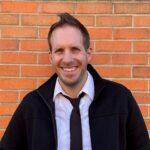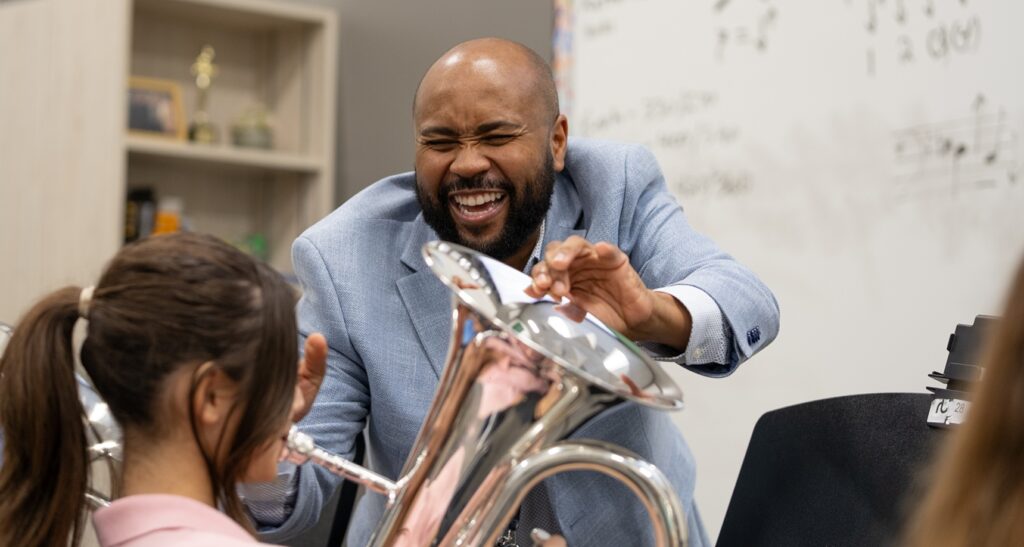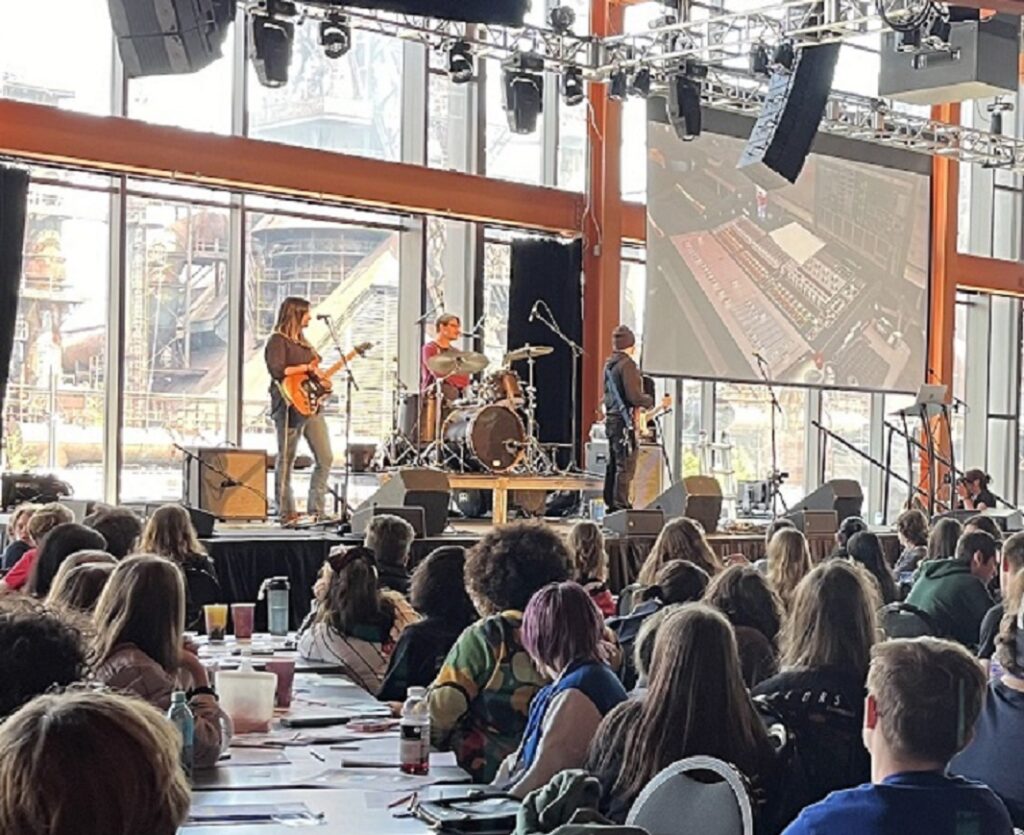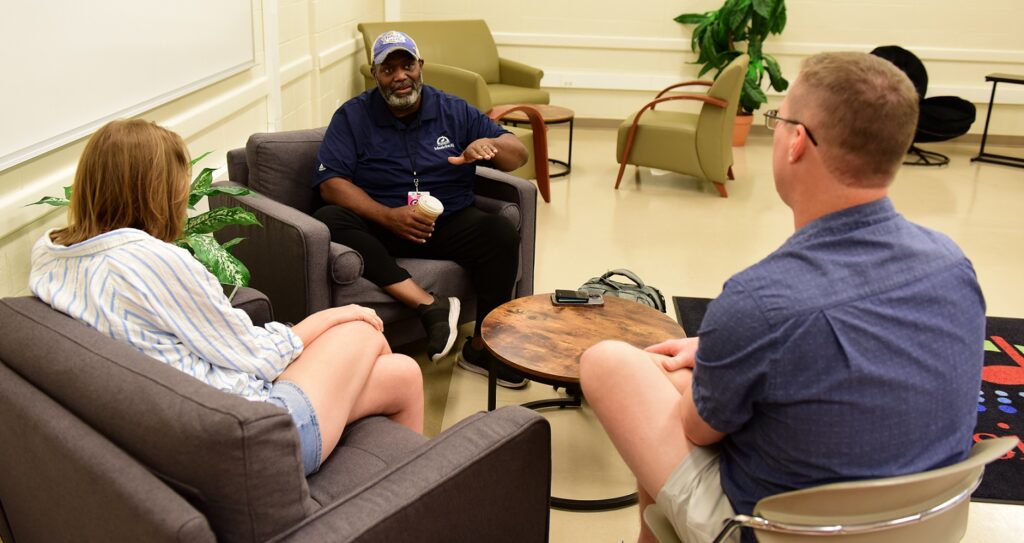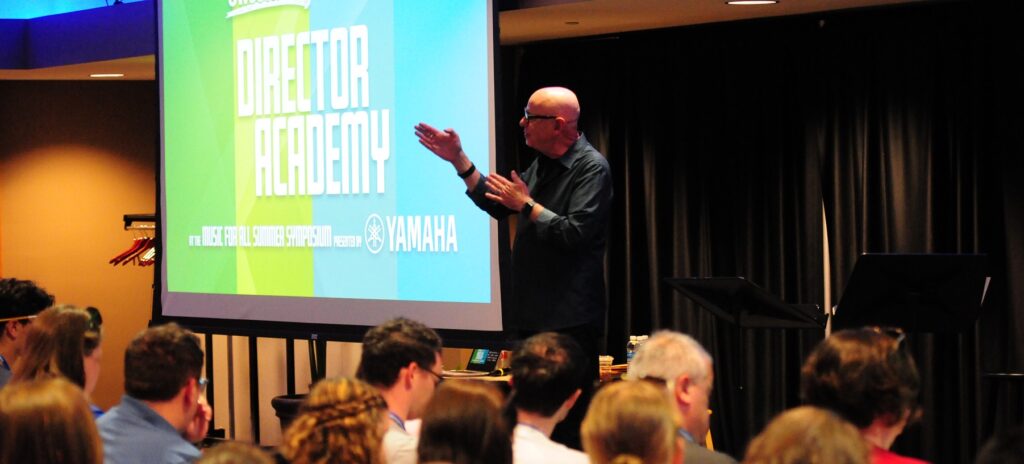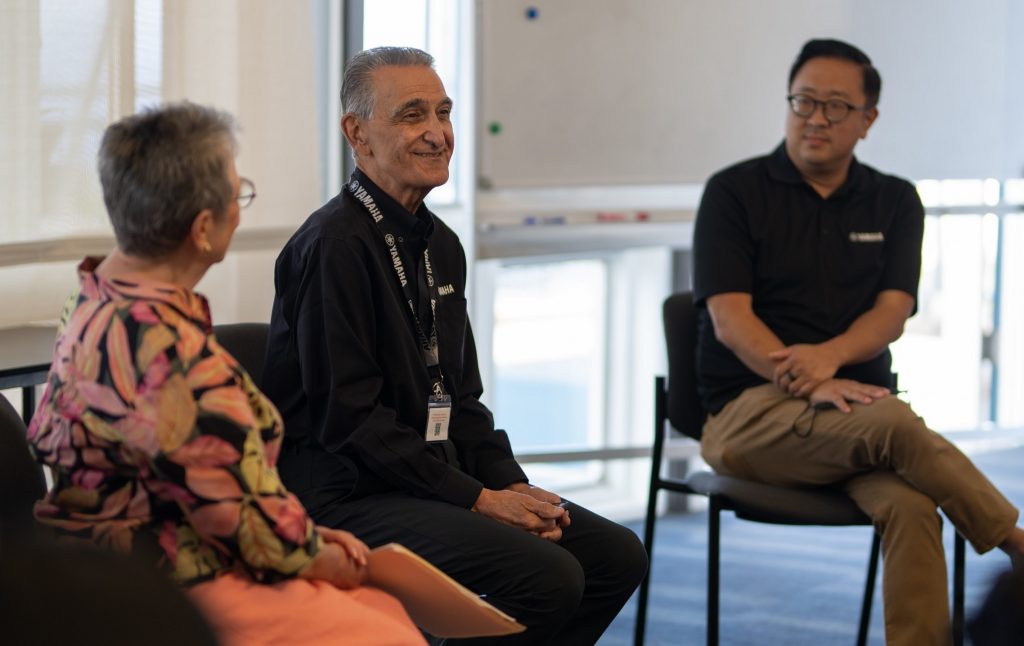New Conference Connects Music Industry and Education
Musikfest Music Industry and Education Conference presents diverse topics, perspectives and approaches.
For the last 40 years, thousands of people have traveled to Bethlehem, Pennsylvania, on the first Friday in August to attend Musikfest, the largest free music festival in the nation. Over 10 days, attendees are treated to hundreds of performances across several stages, featuring local artists of all ages and genres, as well as mainstream artists performing on the premium Steel Stage.
In August 2024, ArtsQuest, the nonprofit organization responsible for Musikfest, launched a new two-day event called the Musikfest Music Industry and Education Conference to bridge the gap between the music industry and music education.
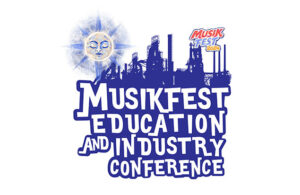
Dr. Marissa Guarriello, the former ArtsQuest Director of Programming for Music, explained in a 2024 interview with local television station WFMZ, “There’s a gap right now in education where teachers and performers aren’t quite aware of how to break into the industry, and what the industry looks like.”
When considering how best to target these groups, Guarriello, who was recognized as a 2025 Yamaha “40 Under 40” educator, continued. “When we decided to do this with Musikfest, we decided that everyone could come and hear about the practice and about the ideas during the day and then walk out the doors and see it all happening in real life.”
The event took place exactly as planned!
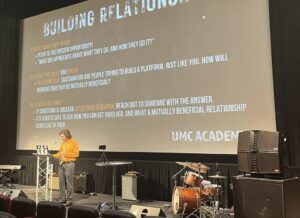
Unique Approach
Like other music education events, the conference featured research posters, exhibitors and numerous sessions. What was different about the Musikfest conference was the opportunity to showcase a wide variety of topics, ranging from songwriting for music educators to the current impact of artificial intelligence on the music industry. Additionally, the event featured diverse perspectives and approaches to these topics.
At any given time, it was possible to hear considerations from the viewpoint of high school and college educators, as well as industry professionals who were not aligned to education at all. While this may seem counterintuitive, this free-form approach encouraged dialogues between those inspiring students toward the industry with those already involved in its success.
Each day of the conference started with a keynote presentation. On the first day, Dr. Alain Barker, Senior Lecturer in Music and Director of Music Entrepreneurship and Career Development at Indiana University, emphasized the significant influence the industry has on the future of music education, highlighting an unprecedented opportunity to promote cooperation between industrial and educational perspectives.
The second day’s keynote featured Dr. José Valentino Ruiz, Associate Professor and Founder/Director of Music Business and Entrepreneurship at the University of Florida, who highlighted the ever-growing need for creativity and self-expression in the industry. Ruiz then delivered a resounding performance on the flute, drawing on experiences in both the traditional side of music-making and expanding efforts toward the future.
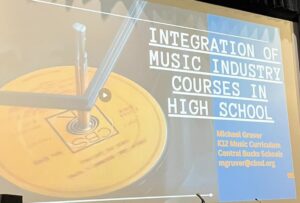
Connecting the Industry and Education
From there, presenters took an even deeper dive into considerations for partnerships between the industry and education. The conference focused on several key topics regarding the future of music education, such as innovative strategies aimed at attracting a broader range of students to scholastic music programs.
Dr. Shane Colquhoun, Assistant Professor of Music Technology and Contemporary Musical Styles at Alabama State University, suggested that the conference was “an outstanding event that brought together some of the best and brightest minds in education and industry,” and that the individuals coming together during this event “could push curriculum and the field of music education forward.”
Sessions also emphasized the importance of alignment with industry practice by assisting students to release their music into the world and develop professional portfolios. Additionally, presentations promoted how musical experiences should reflect students’ identities, ensuring that their participation resonates both within school music communities and in the larger music landscape.
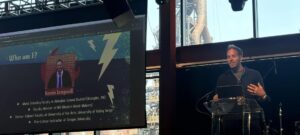
My session was titled “More Kids in the Music Room: Redefining the School Music Community Through the Music Industry.” In the presentation, I took a deep dive into how to acclimate and introduce new populations of students into school music programs without disrupting current course offerings or students who are already involved in music. The presentation highlighted programmatic attempts to encourage traditional unaffiliated students (rappers, rock musicians, etc.) as well as students who might not fit into performance-only roles (producers, managers, designers, etc.). I presented a working strategy for incorporating these students and redefining what it means to be a part of a school’s music community. I also included the positive impacts that I have seen to newly evolved school programs like modern music performing ensembles and student-run music productions, as well as more traditional elements of band, chorus, orchestra or jazz.
I felt that my presentation was incredibly well received, and throughout the conference, I had numerous conversations and potential collaborations with other presenters and attendees. I connected with peers, encouraging similar programming at their schools, and I also took away a new perspective to my own considerations with respect to developing opportunities at my schools in the Abington School District in Pennsylvania, that is reflective of the industry.
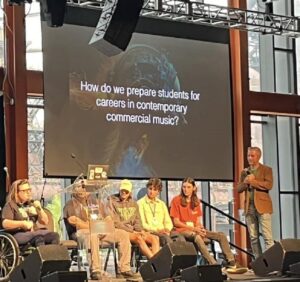
Student Performances
Paired perfectly against the backdrop of these academic pursuits were opportunities to feature high school and college student performers who study and engage in the professional application of the industry. University of South Florida ensemble The Holly Drive Collective, led by Dr. Clint Randles, Professor of Music Education and Co-Director of Contemporary Commercial Music, was the headline performance for night one. The ensemble featured a multitude of student performers, all showcasing original works spanning pop, rock, hip-hop, soul, funk and EDM genres.
Dr. Randles said, “Musikfest (Education and Industry Conference) was an incredible experience for my students. They were able to perform on a stage next to Greta Van Fleet. They made connections after the performance that they have followed through with. Connections to the music industry were strong and observable throughout the conference. I want my students to do internships in the industry. The connections that I made with people in attendance have proven to be valuable already. I hope that we can do it again next year.”
Though not immediately a part of the conference, other scholastic music industry performers throughout the festival included students from local high schools, New York University and the University of Southern California, proving the impact of the event through its expansive reach.
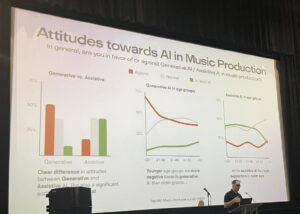
Expand Horizons
Educational conferences provide great opportunities to expand horizons and consider new approaches that impact immediate teaching. The Musikfest conference did that and so much more, as it promoted not only thought-provoking considerations on the future of music education but also the most influential avenues and partnerships moving forward. This one-of-a-kind conference, both in concept and execution, was further acknowledged by many of the participants, including Sarah Gulish, CEO of F-Flat Books and an active clinician and presenter at music conferences nationwide, who said, “There is no industry-focused conference like this on the East Coast and none that correspond with so much live music! We need more dedicated spaces where music education isn’t separate from the music industry.”
Thanks to ArtsQuest and the Musikfest Education and Industry Conference, it won’t be as difficult to find such an opportunity to expand horizons for music education, the music industry, and to challenge the notions of music programming and creating the best practices for students.
For other music industry opportunities for students and teachers alike, consider attending the Modern Music Invitational, held each spring in Abington, Pennsylvania. For more information, email me, visit the website or read about the event here.
References
- Backover, J. (2024, August 1). ArtsQuest holds first ever music industry conference. broadcast, Bethlehem, PA; WFMZ.
Top photo by Shutterstock/Anton Gvozdikov









